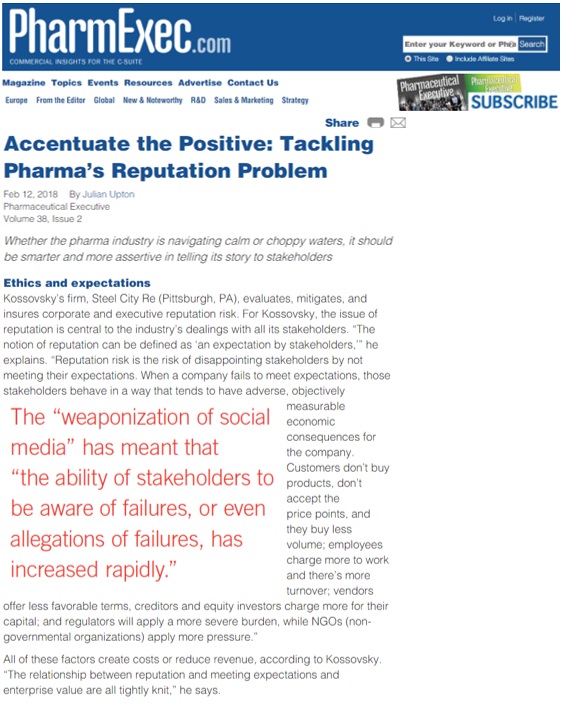Tag Archives: Reputation Risk
- 22
Mar 18
-
- 27
Feb 18
-
- 12
Feb 18
-
Steel City Re Provides Reputation Risk-Related Insight to Pharmaceutical Executive
Kossovsky points to evidence that superior reputations create additional value. He cites the recent example of Merck CEO Ken Frazier’s reaction to the racist protests in Charlottesville, VA, over the weekend of August 12–13, 2017. Early in the morning that Monday, Frazier held a press conference and announced that he was resigning from President Trump’s Manufacturing Advisory Council. “That act raised Frazier’s profile very quickly,” says Kossovsky. “He was known within the industry before that, but not among the general public.” There was the expected surge of activity on Google, with people searching for more information on Frazier, but in terms of the market, “for about the next 10 weeks, Merck outperformed the SNP 500 pharmaceutical index, ultimately by about 3.5%, which for a company of its size translates to creating an excess of almost $6 billion in value.”
And Frazier’s move was no fluke, Kossovsky adds. “He showed that the company had a mechanism where they could take the event of that weekend, process it, and make a board-level decision by Monday morning. That’s a lot of activity for a company of that size, and a lot of risk for a company to take. It meant they had a risk management system in place that could handle it.” For Kossovsky, Frazier’s action was “an incredible example of how a CEO of a pharma company can create value by raising the expectations of stakeholders and signaling that the company is indeed an ethical one.” – Excerpt
To read the Pharmaceutical Executive article in full, visit: Accentuate the Positive: Tackling Pharma’s Reputation Problem

